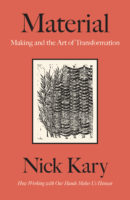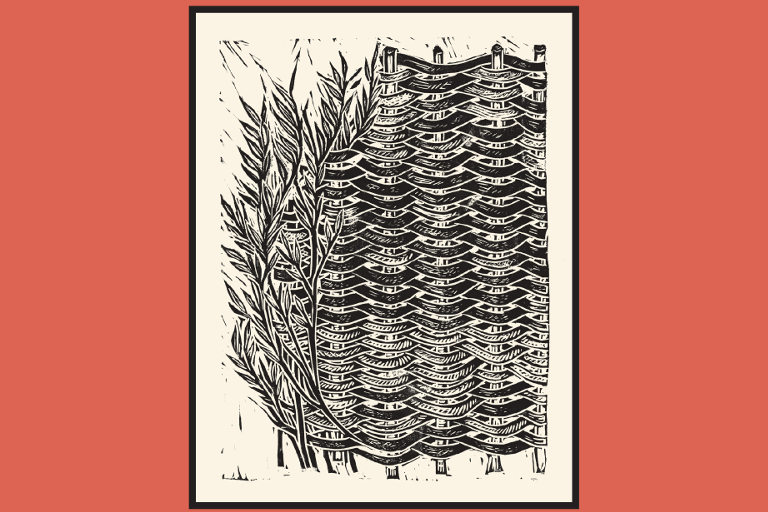 The following excerpt is from Nick Kary’s new book Material: Making and the Art of Transformation (Chelsea Green Publishing, October 2020) and is reprinted with permission from the publisher.
The following excerpt is from Nick Kary’s new book Material: Making and the Art of Transformation (Chelsea Green Publishing, October 2020) and is reprinted with permission from the publisher.
Material
By Nick Kary
We talk of things having ‘material significance’ or ‘material substance’ as a way of indicating the importance we attach to them. We talk of matter, and what matters, what the earth is composed of and what is of relevance to us. We talk of materialism, often in relation to consumption, perhaps forgetting just how linked to material our lives are by necessity. The word has come to us through the Latin materia, which itself derives from the Latin mater, meaning ‘mother’ or ‘origin’. The meaning of the feminine noun materia ranges from ‘breeding stock’ to ‘matter’, and includes ‘fuel’, ‘wood’, ‘material’, ‘latent ability’ and ‘potential’. So, from mother we have the idea of origin, where we are from. It speaks of the latent ability or potential of a person or thing as if they matter.
I write this book to help me understand the relationship that we all have fashioning our lives within the material structure of this planet. Looking back to see how a word has changed meanings over time, what its roots are, helps me in this process. Material is understood today to represent a physical form, something not ‘spiritual, mental or supernatural’, but rather ‘real, ordinary, earthly, drawn from the material world’. As such it is seen as separate to the human, something which does not have an effect on us, but something we can have power and control over. This is quite different to its origin from mother.
What matters to an individual or community helps ground us personally and collectively and becomes imbedded in the varied cultural narratives of our society. Within and around us, matter forms the fabric of all we see, the materials to which we relate throughout our lives. An object made of physical matter and particles may have material significance to a person because of what that object represents to them in the form of personal history. I see our belonging here, as the roots which bind a tree to the Earth. My sense of my material existence is through the roots that bind me to the life I live.
There was a moment many years ago when I took a leap of faith and sought to find a connection to something that ‘mattered’. I had just finished my degree and wondered what it had all been about. The only solid, powerful thing I could connect with was the ground beneath my feet.
In that moment I remembered my English grandad Charles Bedford and his earthiness, and how much I enjoyed the tinkering we had done together. I knew I needed to become a maker. I needed a physical connection to the material, and not more mind-centred meandering. I needed to touch and feel the body of a thing, and I wanted to learn how to transform wood into objects of beauty and utility. I needed centring, and the dignity and physicality of the making process seemed to be my answer.
I embarked on a road whose curves and undulations were unpredictable. I learnt the hard way, first as a designer, manufacturer and supplier, and later as a designer-maker. This is the path I have remained on, originally trained through apprenticeship and at college, and then by the lessons of what works, and what doesn’t. My body has slowly learnt a new language, and my mind has grown beyond my brain. I now make furniture crafted from local hardwoods, each piece bearing the marks and character of the original tree. When I was trained we removed all the ‘imperfections’ that were left in the often imported woods supplied to us straight-edged and uniform. The idea of what was perfect seemed almost unattainable, far away from the dictionary definition of ‘bringing something to completion’. The years of relationship with my craft have been a journey of discovery, and the idea of what should be has slowly dissolved into the simplicity of what is.





